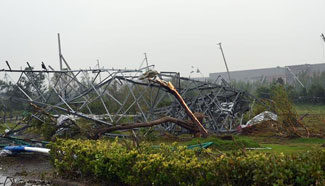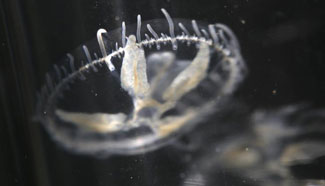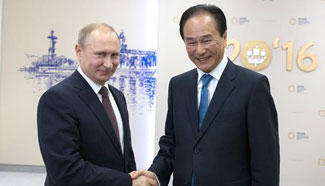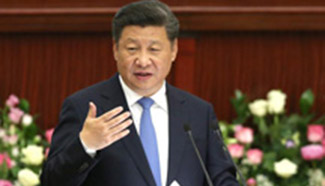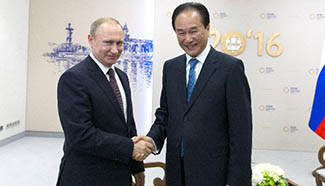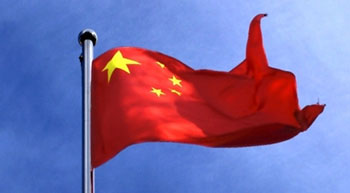SAN FRANCISCO, June 23 (Xinhua) -- Boyalife Group, a consortium based in China, joined journals Science and Science Translational Medicine on Thursday to present a global prize to researchers in the field of stem cells and regenerative medicine.
Known as Boyalife, Science & Science Translational Medicine Award in Stem Cells and Regenerative Medicine, a grand prize of 25,000 U.S. dollars was given to Li Qian, an assistant professor at University of North Carolina at Chapel Hill, and a runner-up prize of 5,000 dollars was given to Yosef Buganim, of the Hebrew University of Jerusalem.
Qian's winning paper, Hope for the brokenhearted: cellular reprogramming improves cardiac function in a mouse model of myocardial infarction, and Buganim's study, Refined nuclear reprogramming techniques yield higher quality stem cells, have been published by Science, a publication of the American Association for the Advancement of Science (AAAS).
"This award is set to recognize important scientific efforts and contributions that bridge innovative research to future clinical applications," said Xiaochun Xu, chairman and chief executive officer of Boyalife, in a statement. "The field of stem cell technology and regenerative medicine has been one of the fastest growing frontier in life science area. We hope the Boyalife, Science and Science Translational Medicine Award can encourage innovations and clinical applications of new technologies."
Xu, himself with research background, was in San Francisco, a city on the U.S. west coast, to attend the award ceremony. He said tissue regeneration has been the dream of many, especially under circumstances where a large number of cells die non-reversibly in the body.
"Every year millions have suffered myocardial infarction that result in lost of cardiac function. New method of converting cardiac fibroblasts inside the body directly by reprogramming clearly presents an innovative and new concept for the treatment of the disease. Many can potentially benefit from such research should such technology be further developed," he said.
Previously known as the International Consortium of Stem Cell Research (INCOSC), Boyalife was founded in July 2009 in Wuxi, a city in eastern China. Aimed to accelerate translation of biomedical research into clinical applications, INCOSC was initially formed as an industrial-research among seven of the world's top research institutes in life sciences and medicine, including Beijing University, the Chinese Academy of Sciences, Roslin Institute, Scottish Center for Regenerative Medicine. It later become Boyalife Group.
Boyalife currently has over 30 subsidiaries and operations across China. Among the subsidiaries, the Boyalife Stem Cell Bank is China's leading clinical stem cell bank, accredited by American Association of Blood Banking (AABB) and World Health Organization. Through other subsidiaries, it is also engaged in regenerative medicine, genomics, animal cloning, innovative drug discovery and disease modeling.
"Boyalife has been committed for technology innovation since its inception and has taken its social responsibility seriously," Xu said about the annual prize project. "Our vision and commitment for better human health is in full alignment with Science, Science Translational Medicine and AAAS. We are very lucky to work together to set up this award and hope that more innovative scientists will be involved in the coming days."


